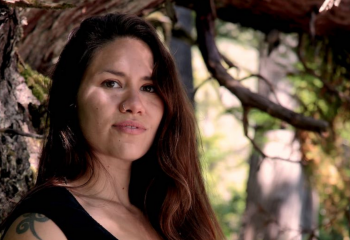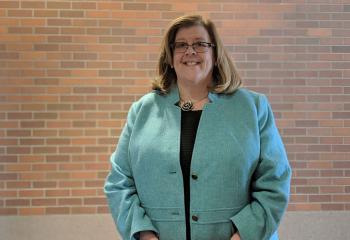From school nursing to testifying in Washington D.C., Gloria E. Barerra makes it her priority to advocate on behalf of vulnerable populations.
—
Gloria E. Barerra wears many hats as a nurse with 12 years of experience. She’s a certified school nurse at a public high school outside of Chicago, an adjunct professor at several universities (most notably DePaul University and her alma mater Saint Xavier University), and she’s president-elect of two local organizations – the National Association of Hispanic Nurses Illinois Chapter and the Illinois Association of School Nurses.
Barerra’s passion for public health is woven throughout her practice, teaching, and community outreach. She has made it a priority to advocate for healthy environments – especially for vulnerable populations.
“We know that children are among the most vulnerable to climate change threats, especially those living in poverty, suffering from chronic diseases, and otherwise disadvantaged,” says Barrera.
Centers for Disease Control and Prevention identifies asthma as a leading chronic illness and cause of absenteeism in school-aged children and adolescents. Barerra has noticed an increase in the number of students with asthma at the high school she works at year after year, “On average, in a classroom of 30, about three students are likely to have asthma. To address this concern, I’ve focused on ensuring better management of asthma in my school and on raising awareness and educating about the impact of air quality on student health. We know exposure to poor air quality impacts health, and action to decrease air pollution is a public health priority to create healthy environments for all.”
Barerra is preparing the next generation of nurses for climate-related health impacts as an adjunct professor, helping her students understand the environment’s impact on health and the role nurses can play to address critical issues. As a nurse climate champion, Barerra utilizes Nurses Climate Challenge resources to teach her students, using presentations and resources in her community health courses. Gloria hosted seven educational sessions reaching over 100 learners. She noted the feedback she received included immediate interest in participating in some of the events she highlighted, such as joining Jane Fonda for Fire Drill Fridays, learning more from podcasts, engaging in climate action on social media, and using Nurses Climate Challenge tools within their own communities.
“Most of my students hadn’t thought about climate change and our responsibility as nurses to advocate for public health,” she says.
Barerra began testifying on environmental issues on behalf of Alliance of Nurses for Healthy Environments, and she now frequently speaks to local and federal policymakers, advocating for policy to improve air quality. After testifying for the first time in 2016 to elected officials in Washington D.C., she realized the unique and important voice nurses have when it comes to advocating for environmental health, “As the most trusted professional in the U.S. for 18 years in a row, we are in a position to use our credibility and influence. We can no longer shy away from these conversations. We’re the experts. We have our nation’s trust. We must use our voice.”




